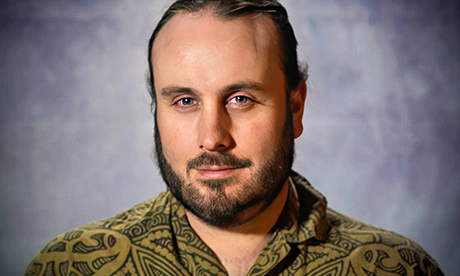In December 2019, an active-duty soldier was arrested at Linton Military Camp.
It has been reported that the soldier, who is still awaiting court martial and has name suppression, was a member of multiple far-right groups, including the white nationalist organisation Action Zealandia.
He is facing numerous charges that include espionage.
Less widely reported is that a few months prior to his arrest, the newsletter of a parish in Palmerston North diocese lists him as receiving the Sacrament of Confirmation.
Sam Brittenden, who was arrested in relation to a threat to Al Noor Masjid in Christchurch in 2020, in the lead up to the first anniversary of the 2019 massacre, had also been a member of Action Zealandia.
In 2021 Brittenden became involved with the Sons of the Most Holy Redeemer (FSSR), before falling out with them and travelling to Ireland to join a fringe sect led by an excommunicated priest.
Why are young men like this gravitating toward Catholicism?
Vatican journalist Christopher Lamb, author of The Outsider: Pope Francis and His Battle to Reform the Church gave an answer when interviewed by Vanity Fair in 2020.
“The populists and nationalists were looking for some kind of soul for their politics. And they found it in some symbols of the faith.”
The same article quoted David W Lafferty, who writes about conspiracy theories for the Catholic website “Where Peter Is,” described this as “Catholic LARPing.”
LARPing refers to ‘live action role play’, that is, adopting the trappings of Catholicism without a real connection to the faith.
The contemporary far-right has adopted a view of history that sees ‘The West’ as being in an ongoing conflict with Islam, dating back to the Crusades and continuing to this day.
The Crusader battle cry ‘Deus Vult’ (God wills it) and the imagery of the pious Crusader knight reclaiming the Holy Land from Muslims, have become symbols of the alt-right movement.
Historical clashes between Christian and Islamic armies have been elevated to a kind of semi-mythological status.
The Christchurch shooter had adorned his weapons with the names and dates of centuries-old battles in which many Muslims were killed, and his manifesto anachronistically referred to Muslims as ‘Turks’ throughout.
When he became involved with the FSSR, Sam Brittenden took the name John Capistrano, after a saint who led a crusade against Ottoman Turks at the Battle of Belgrade in 1456.
In a thread of quotes on a traditional Catholic web forum Brittenden frequently posted to, he shared one from Saint Bernard of Clairvaux preaching during the Second Crusade: ‘Fly then to arms; let a holy rage animate you in the fight, and let the Christian world resound with these words of the prophet.
Cursed be he who does not stain his sword with blood.’
Men from the alt-right looking to become practising Catholics tend to seek out the most traditionalist orders that reject the reforms of the Second Vatican Council.
Earlier this year in the United States, an FBI document, “Interest of Racially or Ethnically Motivated Violent Extremists in Radical-Traditionalist Catholic Ideology Almost Certainly Presents New Mitigation Opportunities,” was leaked.
The document states that the FBI believes racially or ethnically motivated violent extremists will likely become more interested in “radical-traditionalist Catholic ideology” within the next 12 to 24 months, in the lead up to the next US presidential election.
The FBI planned to find sources within traditionalist groups to report on individuals seeking to use social media sites or places of worship as facilitation platforms to promote violence.
As we have seen, New Zealand is not immune to this phenomenon.
In addition to Brittenden and the arrested soldier, four men identified as traditionalist Catholics attended a recent rally in Auckland wearing garb associated with the alt-right movement.
A young man presenting at a parish and wanting to adopt the name of a crusader should trigger a response within Catholic communities — not one of rejection, but an opportunity for deradicalisation.
The supposedly Catholic worldview these men are acquiring largely through online spaces is out of step with the teachings of the modern Church, and their engagement with parishes is perhaps an opportunity to start them on a better path.
- Byron Clark is the author of ‘Fear: New Zealand’s Hostile Underworld of Extremists’.
News category: Analysis and Comment.




